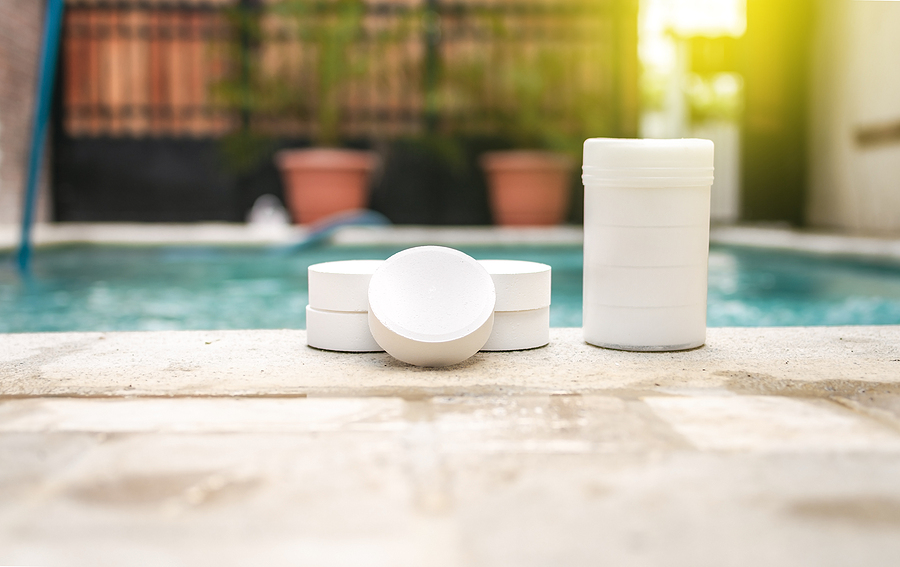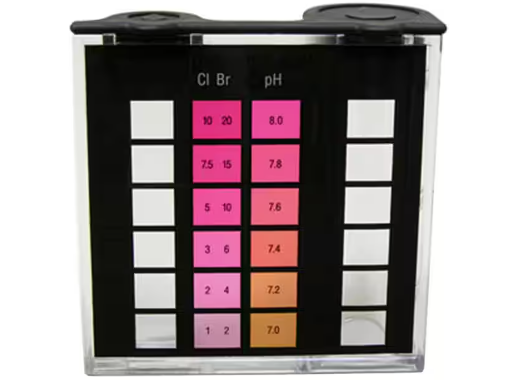Swimming Pool Chemical Safety: How to Handle Spills Properly
Maintaining a swimming pool involves the use of various chemicals to ensure the water remains clean and safe for swimmers. However, handling these chemicals requires careful attention to safety protocols to prevent accidents and spills. We’re here to guide you through the essential steps for handling pool chemical spills properly, ensuring the safety of everyone around your pool and surrounding environment.
Understanding Pool Chemicals
Proper management of pool chemicals starts with understanding what they are and their potential hazards. Here are some common chemicals used in pool maintenance:
- Chlorine: Used to disinfect and sanitize pool water, killing harmful bacteria and pathogens.
- Bromine: An alternative to chlorine, often used in hot tubs and indoor pools for its stability at higher temperatures.
- pH Balancers: Chemicals like sodium carbonate (soda ash) and muriatic acid help maintain the water’s pH balance.
- Algaecides: Used to prevent and control algae growth in pools.
- Cyanuric Acid: Acts as a stabilizer for chlorine, protecting it from being broken down by sunlight.
Importance of Chemical Safety
Improper handling of pool chemicals can lead to serious health risks, environmental damage, and legal consequences. Chemical spills can cause skin and eye irritation, respiratory issues, and even poisoning in severe cases. Additionally, spills can contaminate local water supplies and harm wildlife. Compliance with safety regulations is not just a legal obligation but a critical aspect of responsible pool management.
Preventing Chemical Spills
Prevention is the best strategy for managing pool chemicals safely. Here are some key steps to prevent spills:
- Proper Storage: Store chemicals in a cool, dry, and well-ventilated area, away from direct sunlight and incompatible substances. Use clearly labeled, corrosion-resistant containers.
- Regular Maintenance: Inspect storage areas regularly for leaks, corrosion, or damage. Ensure that containers are tightly sealed when not in use.
- Safety Equipment: Equip storage areas with safety gear such as gloves, goggles, and spill kits. Ensure all staff members are trained in using this equipment.
Immediate Response to Chemical Spills
In the event of a chemical spill, quick and effective action is crucial. Follow these steps immediately:
Initial Steps:
- Pool Chemical Spill Assessment: Assess the situation to determine the severity of the spill.
- Alert everyone in the vicinity and evacuate if necessary.
- Evacuation Procedures: Ensure a clear and safe path for evacuation, avoiding the contaminated area.
- Personal Protective Equipment (PPE): Wear appropriate PPE, including gloves, goggles, and protective clothing, before attempting to contain or clean the spill.
Cleaning Up Chemical Spills
Once the initial response is underway, follow these steps to clean up the spill:
- Contain the Spill: Use absorbent materials or spill containment kits to prevent the spread of the chemical.
- Neutralize the Spill: If applicable, use neutralizing agents specific to the spilled chemical.
- Clean the Area: Carefully clean the contaminated area with appropriate cleaning agents.
- Dispose of Waste: Dispose of all contaminated materials and cleaning supplies according to local regulations.

Post-Spill Procedures
After cleaning up a chemical spill, it’s important to follow these steps:
- Reporting: Document the incident and report it to the appropriate authorities if required.
- Restocking Supplies: Replenish any used safety supplies and ensure that spill kits are complete.
- Reviewing Protocols: Evaluate the response to the spill and update safety protocols and training as necessary.
Training and Preparedness
Regular training and preparedness are key to effective chemical spill management. Ensure that all pool staff:
- Receive Regular Training: Conduct frequent training sessions on chemical safety and spill response.
- Participate in Emergency Drills: Schedule drills to practice spill response procedures.
- Access Resources: Provide access to safety data sheets (SDS) and other educational resources on chemical safety.
Ensure Swimming Pool Chemical Safety With POM
Ensuring the safety of your pool operation is paramount, especially for commercial facilities. Pool Operation Management offers comprehensive safety training and certification courses to help you and your staff handle pool chemicals safely and effectively. Reach out today to learn more about our services and how we can support your pool management needs.







